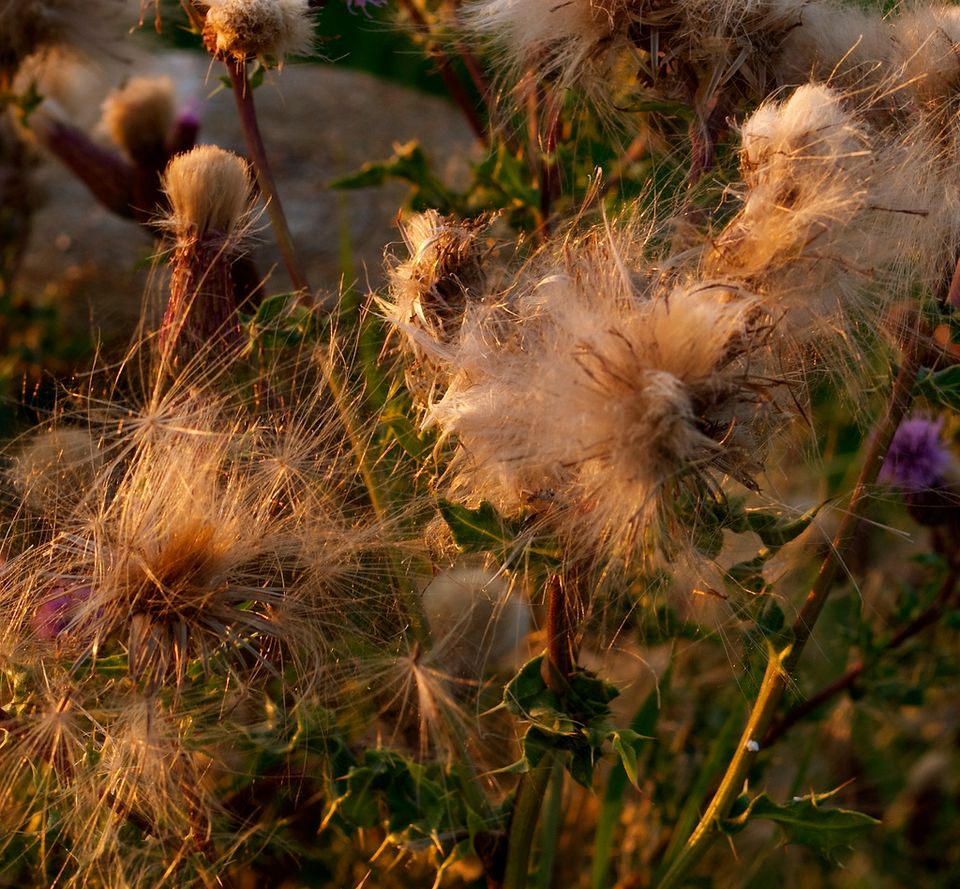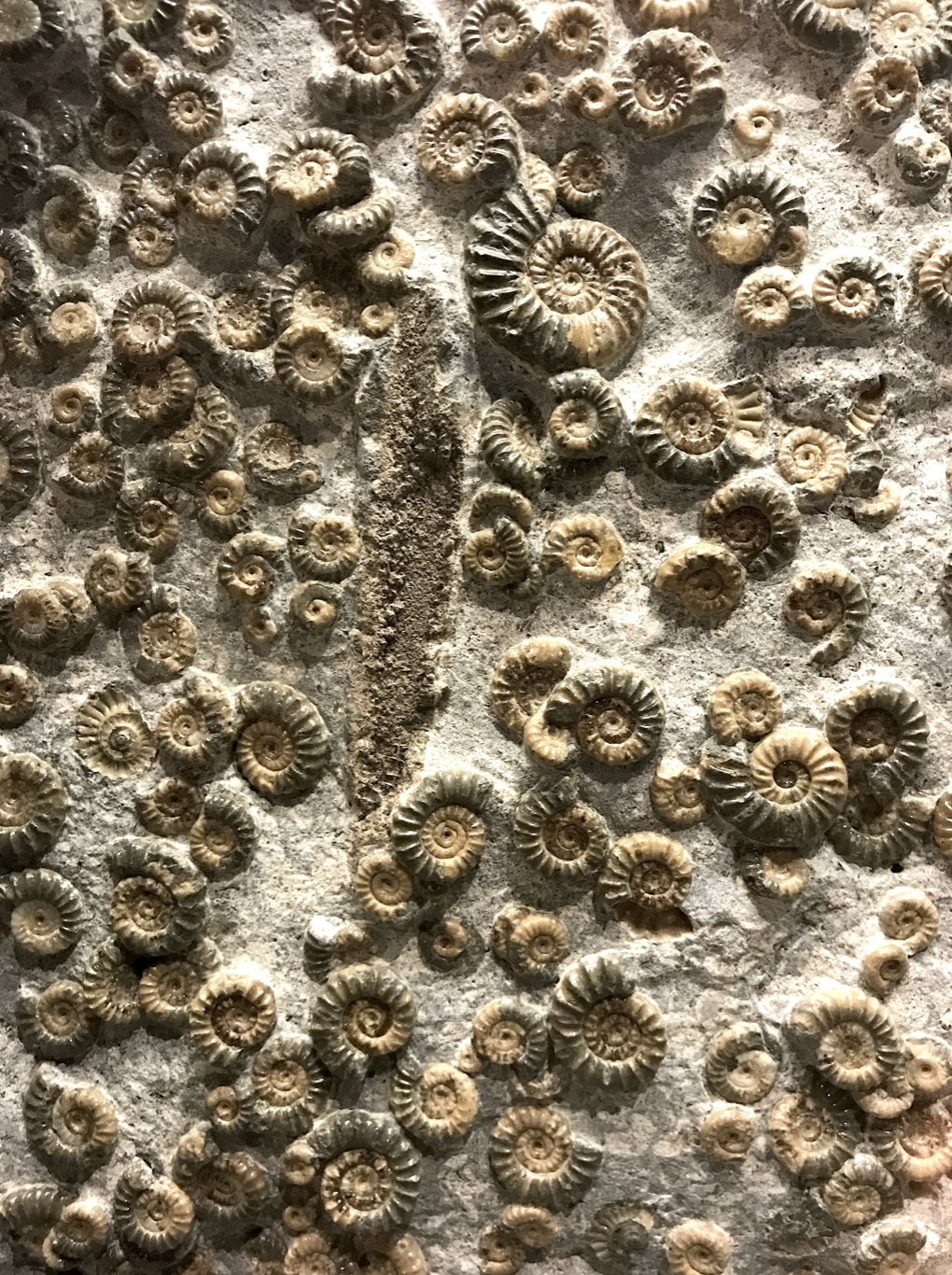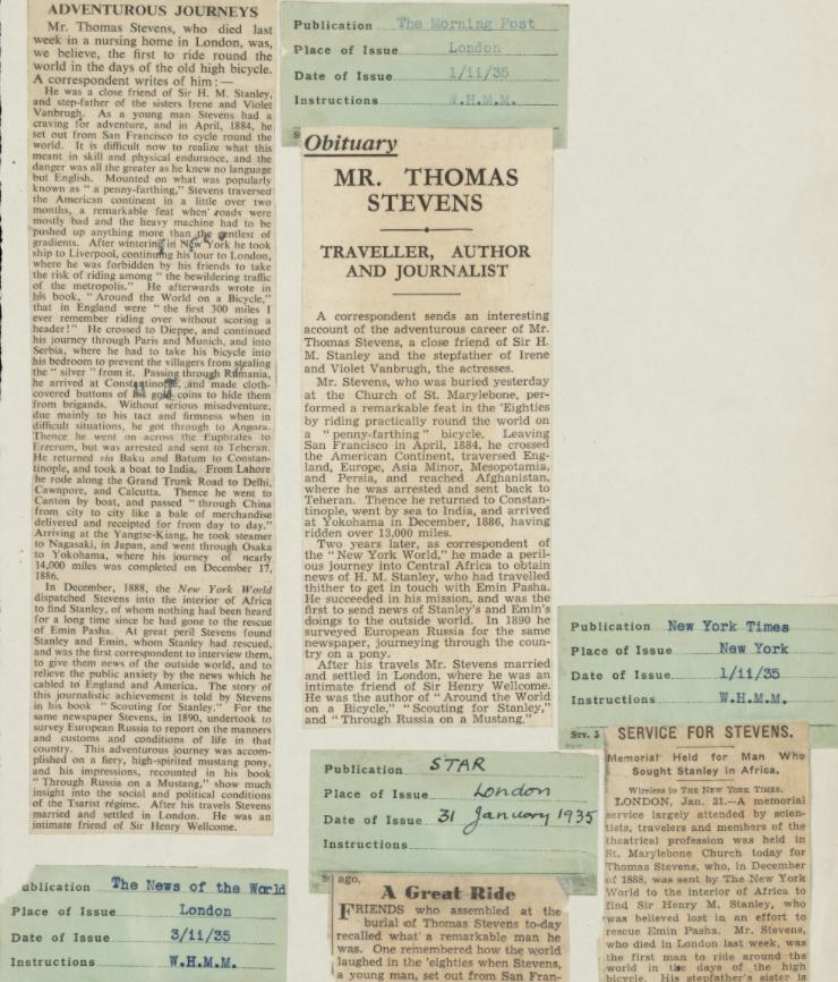Cursed is the ground because of you;
In pain you shall eat of it all the days of your life;
Thorns and thistles it shall bring forth for you;
And you shall eat the plants of the field.
By the sweat of your face
You shall eat bread.
…
If anyone’s work is burned up, he will suffer loss, though he himself will be saved, but only as through fire.
…
The thistle bothered me all summer. The cows had eaten the timothy and the other good grasses around it so that it stood lordly and alone in that part of the pasture. On my daily walks past it to feed the hogs, I’d always commit to some action against it. But I was always carrying buckets. Or pushing a wheelbarrow. Never a shovel or pair of snips or even a glove to seize it. Then I’d return to the house or some other task and forget about it. It bloomed brilliant and purple for two weeks in July, and as summer dragged long and hot into August, the flowers molted into five sprays of downy seeds. One hot day, shoving the wheelbarrow past, I eyed that thistledown. Nothing more than a breeze or a passing animal would jostle it loose into the pasture. Then how many more thistles next summer? A shovel, dammit, I resolved: I’d just go get one, then and there. Sweat beaded in my eyebrows and ran down my face. By the time I got back to the house, thirst overwhelmed the work and I made for the kitchen sink. There I drained a jar of cold water and excused myself from going back out into the heat.
There was a small Red Angus heifer, six months old in September, scarcely any bigger than the May day on which we had bought her. Blossom. A slow, sweet-tempered creature. Shaggy auburn coat. Far more interested in having her neck rubbed than in eating or gaining weight. Her shoulder was barely as high as my hip.
She had no ambition. In the mornings, Marigold, a brown Jersey, would come galloping up the hill as we carried grain in buckets to the chickens. Cocoa, her black calf, trailed her. Blossom ambled up after them, indolent, lackadaisical. The Jersey would lunge at the spilled grain, brushing it into her mouth with greedy sweeps of her head, chewing near the ground, poising her mouth over the next bites. But the little heifer would dip her head as if with a shrug to browse the barley, eating it, seemingly, one grain at a time.
At a month old, Cocoa could dance circles around Blossom. By two months of age, sturdy and arrogant and full of his mother’s milk, he stood eight inches taller than her. One morning he butted Blossom in the neck and took over her grain spill. She backed up a few paces and watched him eat. There were five porcupine quills stuck in her nose like darts around a bullseye. Scratching her cheek, I plucked them one by one, zebra-striped shafts disappearing into a fine, painful point. She seemed to not notice when I pulled them out. I wondered how many days they might have been stuck there, me not noticing. And I wondered what was wrong with this cow that would not grow.
Summer gave way to autumn. Autumn ceded to winter. Frost blanched the fields brown and lifeless. We started feeding hay to the cows. Cocoa moved to a neighbor’s farm to wean him off Marigold. The Jersey and Blossom would sleep in the warm piles of uneaten alfalfa. We could watch them from the window above the kitchen sink. At 8 o’clock one January morning I filled the kettle with water and saw Blossom nested in the hay. Fog hid the mountain. Hoarfrost gilded the pines on the hillside. It traced the fence posts and barbed wire and anything that stood above the ground that did not move. At ten I washed a glass and saw through the window that she still lay where she’d been. I pulled on my boots and dashed out.
She lay on her side. Her eyes were warm and pathetic. I slid my hands underneath her and tried to sit her up. She flopped back down.
A vet friend came out in a couple hours. He felt along her back, the loin muscles on either side of her spine. “How old is she?” he asked, “Three months?”
“Um, eight, actually.”
My daughter brought me a calf bottle filled with warm water. Blossom sucked it down. Halfway through the bottle, she sat upright. The vet said that something was making her dehydrated and that, not being a large animal vet, but rather a specialist in dogs and cats and the like, he’d have to get back to me about underlying causes.
“For now, though, B vitamins, probiotics. As soon as you can, warm water with electrolytes. She needs all of that.”
I returned in an hour with the electrolytes. Halfway through it she stood up on her own, and regained her normal, dopey self as she finished. In the last light of the day I looked out the kitchen window and saw her browsing the field for the short green shoots amidst the brown stubble. I determined that I’d give her a couple bottles of the electrolytes every day until the packets ran out—about a week’s worth. In that time I’d figure out how to feed her the probiotics and summon the nerve to stick her with the horse needle full of B vitamins.
As my head hit the pillow the next night I realized that I’d forgotten to give Blossom her water bottles that day. Sleep was overtaking me. I found it simple to tell myself that she could coast for the day and that I’d resume her bottles first thing the next morning. The bedroom window was cracked an inch. I fell asleep listening to the distant yaps of coyotes.
At eight I filled the kettle and looked out the kitchen window. She was curled up in the hay. I sent my daughter out with a warm bottle.
She was back at the door in two minutes asking me to come outside.
I knelt by Blossom. Hoarfrost was on her face. Her eyes were open, soft and black, serene, asking for nothing. Something in them had closed and was no longer seeing. I ran my hand from her cheek along her neck to her shoulder. Her body was beginning to stiffen. Something passed in the air above me. A crow circled and landed on the branch of a nearby willow. It cawed and was answered by other crows I could not see. They would go for her eyes first, and then likely to a spot of thin skin on her back where their beaks could easily pierce her hide and find her flesh.
The ground was frozen. I could not dig a hole for her myself. After a few phone calls I learned none of my friends could help me until a couple days hence. By that time every scavenger a mile around would have scattered her all over the field. Procrastination was not an option. Neither, it seemed, was anything else. How do you get rid of a dead cow in the middle of winter?
Up the hill past the barn I glimpsed the burn pile. Twisted lumber. Rotted fence posts. Brush. Pallets. Work not worth keeping. A blaze hot enough to turn Blossom to ashes. I only had to get her up there.
I fetched the wheelbarrow. But how to get her in it without help? Perhaps I could lever her up with two-by-fours. To gauge what I’d need for the task, I grabbed her four legs and tried her weight.
I picked her right up.
It was like she was half filled with nothing, her belly cavity empty of innards, her bones hollow like a bird’s. A pig her size would weigh 300 pounds. She weighed scarcely 100. I dropped her into the wheelbarrow. Her hooves stuck over one side. Her head flopped over the front. As I started to push it uphill a tall weed caught my eye. The thistle. Every thorn on it still intact. The involucres of the five flowers empty of thistledown. The whole thing gray-brown and frost-brittle, its outline traced in hoarfrost. My hand wrapped up in my coat cuff, I pulled the thistle and placed it on the side of my little dead cow.
The fire lashed through the still, cold air, its fierce heat as hot as thirst. Blossom lay atop three stacked pallets. Her hooves were consumed. Flames raced over her auburn hair. The thistle turned to smoke. The heat was a presence, searing and steady. I looked at her face for the last time, fire licking out from between her teeth, her nostrils flaring as their flesh burned away, the flames revealing my work, burning it up, saving me.




